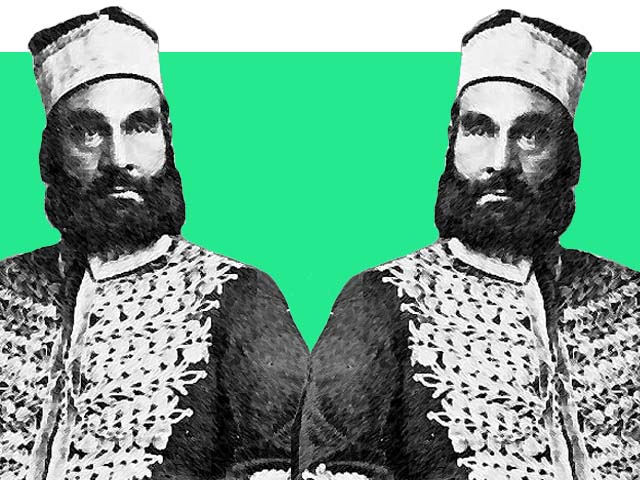
The sad tale of Delhi: As narrated by its bards – Part 2
Read Part 1 in this series here.
~
Dagh Dehlavi witnessed all this while sitting in some corner of the city, and it is surprising that despite being closely connected to the fort, he was saved from the cruelty of the British. Perhaps to mourn Delhi, today we can say with great pride that despite his comfort-demanding nature, his sensitive heart was affected deeply by this incident. He had wept at the destruction of a once flourishing world. Hence, Dagh’s work is riddled with the cruelties and savageries which the British perpetrated on the residents of Delhi. There is great anger, irritation and pain in these verses. Readers’ hearts are often shaken by the sincerity of passion in his work and the forceful narrative his realism embodies.
Surprisingly, the Urdu memoirists and critics have not at all considered this period of Dagh’s poetry worthy of attention. Though, on closer inspection, one finds that Dagh’s verses from this period are very unique and distinctive. One cannot even find a handful of verses of such thunder among the collections of his contemporaries. Indeed just this “Poem of a ruined city” is enough to grant him eternal life and Dagh wrote these verses in the tumultuous field of Delhi at a time when nobody had even the courage to open their lips. Despite these restrictions of speech, Dagh unhesitatingly wrote with the tongue of his pen all that which was passing over his heart. In one of his ghazals he mentions these restrictions on speech:
“If there be anger still, it should not be a hidden secret
Lips, self, mouth, tongue are all prohibited”
Even then his moral courage forces him to say the truth and he expresses his passions in the following words:
“O censor, with just your consent how many calamities
The glass is silenced, the flask is suffocated
A hundred times upon a word of love the beloved is irritated
Now even the register of the story of love is terminated”
Dagh’s “Poem of a ruined city” is actually the dirge of Delhi. In the initial stanzas of this poem Dagh has mentioned the past glory of Delhi,
“Its very shadow was light, this was that city
Its lamp, filling the lightening of Mount Toor with jealousy”
But when indigenous armies from Meerut and Moradabad arrived in Delhi, they were the cause of lawlessness in the city,
“The people became angry, the city in calamity
With the arrival of Easterners, came Divine fury”
Dagh seems upset with these Easterners, therefore in another ghazal where he mourns for for Delhi, he has expressed sorrow at the loot and plunder of these indigenous armies,
“They looted away now the splendor of Delhi
First the Easterners blew up the language of Delhi”
Perhaps he criticised the Easterners expediently so that what he had written about the foreigners would be concealed and he be spared from inquiry and reproach; but actually in the “Poem of a devastated city” and “Lament of Delhi”, it is the foreigners who are the target of Dagh’s curses,
“All was gifted to the armies by the ruler
From the treasure of Croesus to Delhi’s hidden treasure
No length of reckoning on the Day of Judgement would be greater
On Heaven too one can hear mourning and clamour
Would that the angels too be mourning Delhi’s slaughter”
In a couplet of the same ghazal, he has also mounted a very delicate sarcasm on the armies that had gone from Punjab to conquer Delhi under the command of General Nicholson and General Lawrence,
“The red-faced of Punjab are zealous in uproar
You autumn of Delhi are up for some new adventure”
Such too was the demand of prudence that nothing more be said about these “red faced” ones. Following his ode to the springs of the flourishing garden, Dagh mentions its autumn in these words:
“A strange shape one saw of the flower and the garden
Wherever the eye went one saw the autumn
When one saw blood drench getting up, thrown down
No manner of carrying on with the pleasure
No more those jasmine-bosomed beauties with their laughter
No more those melodious nightingales with their chatter”




COMMENTS
Comments are moderated and generally will be posted if they are on-topic and not abusive.
For more information, please see our Comments FAQ